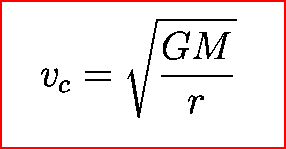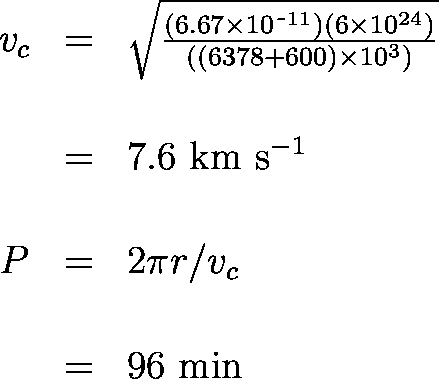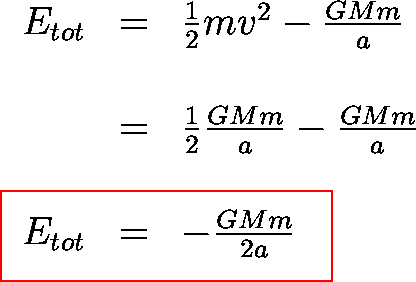Orbital Energy
What is the energy of an orbiting object?
Consider a circular orbit (r=a)
and m << M.
So E = K + U. We know
U. What is K
(or, what is speed)?

and we have Kepler's 3rd Law:

so chugging  through
the algebra, we get:
through
the algebra, we get:

or the general formula for circular velocity:

So for, example, look at the Hubble
Space Telescope. It is in a low-Earth orbit (600 km above the surface).
So,

Now, back to energy:
 Note that E < 0. This is called a bound
orbit.
Note that E < 0. This is called a bound
orbit.
We have derived this for circular orbits, but it can
also be derived for any bound orbit.
Note two important things:
-
E is constant for any given orbit.
-
E depends only on a, not
e.
Let's do two thought experiments.
Orbital speed
Let's equate the two different expressions for orbital energy:
 Doing a little algebra
Doing a little algebra  we
get
we
get
 which gives the object's speed at any point along the orbit.
This is the vis-viva equation, and
is more generally
which gives the object's speed at any point along the orbit.
This is the vis-viva equation, and
is more generally




 through
the algebra, we get:
through
the algebra, we get:





 we
get
we
get

